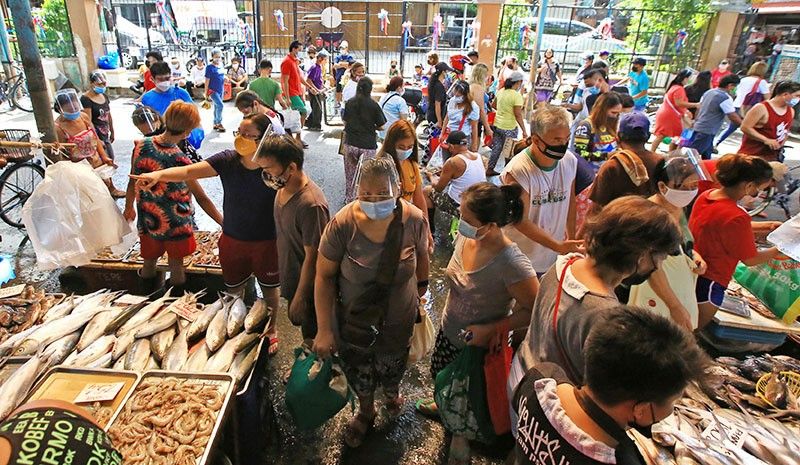PNP now allows APORs to cross borders for medical, humanitarian reasons

MANILA, Philippines — The Philippine National Police will be allowing persons travelling for health-related and other medical reasons to cross border control points set up in Metro Manila and four adjacent provinces, it said late Sunday night.
In a statement sent to reporters, Police Gen. Guillermo Eleazar, PNP chief, said persons travelling for health and other medical-related reasons, along with those whose travels are related to family emergencies, are classified as other APORs, or authorized persons outside residence.
"Other APORs include our people who have appointments with doctors and those who have to go home because immediate family members have died, or have a pregnant wife and other factors that are part of our Filipino culture," Eleazar said in Filipino.
"Our police will not stop those with scheduled medical check-ups from crossing to other cities and those who will deliver them," Eleazar said. "We have issued guidelines on this and our PNP personnel already know what to do."
This comes after the PNP drew criticism for its earlier statement disallowing non-APORs to fetch and pick up, or hatid-sundo, other APORs. The PNP defended the rule but eventually scrapped it.
Eleazar on Monday said that crossing a border for persons requiring emergency treatment would always be allowed especially if the condition cannot be treated within the locality due to the unavailability of medical facilities.
"Even those scheduled to be vaccinated in other cities can cross the borders because we know that there are local government units that vaccinate employees of companies located in their respective areas."
Cops manning checkpoints have been advised to allow persons under the “other APOR” category to cross borders.
In allowing those who would cross borders for medical check-up and other health-related reasons, Eleazar said that it was based on the assumption that most of them have family doctors or trusted physicians who are based outside the LGUs where they live.
Eleazar also reminded the public to continue observing the quarantine rules, particularly on unnecessary travels, adding that the daily infection rate is currently averaging an alarming 10,000 new COVID cases daily.
"The purpose of the ECQ is to limit the outflow of people and prevent the further spread of COVID-19," he said in Filipino.
"So if we don't have an important plan or we can postpone the event, it's better for us to stay in our houses during ECQ," Eleazar said.
As it currently stands, APORs are generally classified into two main groups:
- Worker-APOR who are allowed to go out and cross borders for being an employee of businesses and industries permitted under ECQ
- Customer-APOR who are allowed to go out and avail of goods and services of businesses and permitted industries but are prohibited to cross borders.
- Latest
- Trending






























